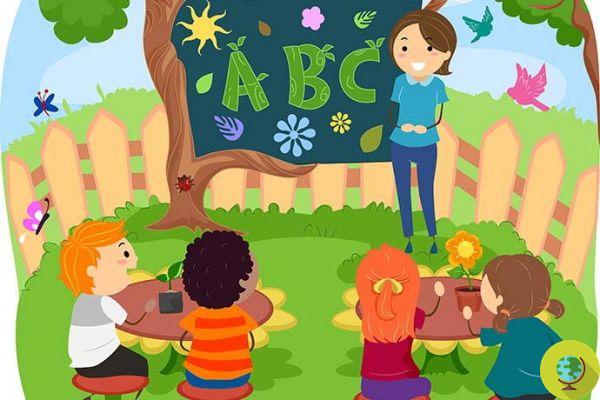
The whims of children? Difficult to manage them, but with a good practical sense, a hard wrist and a lot of patience you can win even those
Don't store avocado like this: it's dangerous
SOS moods, or rather what to do when the baby sits there and complains, at any time he decides, anywhere and by any means. If there is a whim, a sudden leap into delirium, the moment of pure panic, cries and screams from horror films, you must (you should) take a step back and transform yourself into Mother Teresa of Calcutta.
That's right, because there is no Bettelheim manual or Nanny advice they keep. If you are dealing with a capriccio of your son, ergo with the Devil himself, what you need is a ship loaded with Patience and the number of Father Amorth. Those little creatures there, in fact, if they start in the fourth with a whine, they are able to send your brain to jelly in a nanosecond and to put a strain on even Job's patience.
But what world is there behind a whim? Actually there is a universe larger than one might think. An infinity of expectations and requests and disillusions and trust in the balance that have immeasurable importance for a child.
Many times (always), in fact, we are led to belittle that moment of tense nerves, because it seems excessive and senseless to us, because the request that has just reached our ears seems absurd, because it is not really the time. And then, without pretending to do a treatise on child psychology (I wouldn't even have the skills), I often found myself observing (calm down, take a deep breath, count to 10) those little boys screaming in front of me and drawing one only conclusion: they have their own character, they are people, they try to assert their autonomy from us, their power. And, sometimes, they succeed very well.
Do not think, in fact, that they are there screaming unaware of everything: they know perfectly well what they want and therefore they fight with all their strength. And what they aspire to often seems “futile” to us, a gift, chips, a refusal to put on a pair of shoes. They are only requests, but behind them, I am convinced, there is much more: there is the need for reassurance, to feel one's power, to test the limits of the relationship with us.
In short, a grind. It's obvious, not all the times the whims of children are to be indulged. Indeed, never, because the danger of creating a vicious circle is just around the corner. How do we behave, then, to make sure that those five minutes of conflict pass without too many jolts?
ignore it. That's right, especially in cases where he cries recklessly. It often turns out to be the best technique: the “No intervention” in case of unjustified whims is most of the time the most adequate answer. If you are away from home and what is unfolding is a really bad scene, don't panic anyway and take him far away, to a quieter place, to wait for him to "cool off" by himself.
Don't scream. Don't add your screams to him. Nobody will understand anyone and after 10 minutes you are still at the starting point. Use a tone confident and be firm in what you say, without appearing altered or, worse still, desperate, and wait for him to calm down to clarify some points.
The rules. If the child is 2 or 3 it is really difficult to talk about rules. If he has taken a toy from another child he is enjoying the beauty of "power" and you will hardly be able to make him change his mind. So take it from his little hands and give it back to you and the duenne will certainly understand yours gesture. As for older children, the rules (few and simple!) and their respect should prevent several peaks. The important thing is to manage the rules always in a positive way and that the child understands that he cannot expect such a thing now and immediately: “I'll turn on the TV if we all eat together at the table first” (perhaps better than “if you don't eat you don't see the cartoons”).
Hence the award: the gratificationin fact, we should never forget it. We should be able, in practice, to bring the baby towards the correct behavior by rewarding him rather than punishing the wrong behavior (no punitive expeditions, therefore, especially after we have kept a whim at bay).
There is no going back: if you have decided not to comply with his request, do not turn around to settle the matter as soon as possible. It is hard, very hard not to give in, but better to be consistent and not retrace your steps. In addition, do not immediately try to console him with special attention or gifts.
Patti clear long friendship, or "communication": let's go to that place and I can only buy you one thing. Talk, explain why and how and reassure them that everything will come at the right time.
Treat them like grown-up people, perhaps, and you will see that they will do nothing but be grateful to you!
Germana Carillo
READ also:
Against whims, no tablets and smartphones: the child's development is at risk
Bedtime rituals: how to help our children fall asleep more peacefully


























